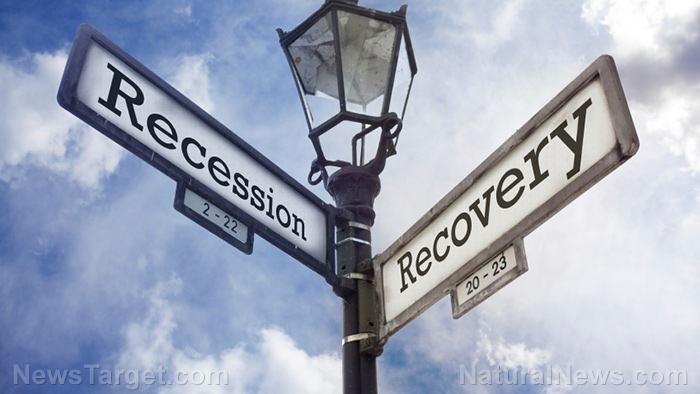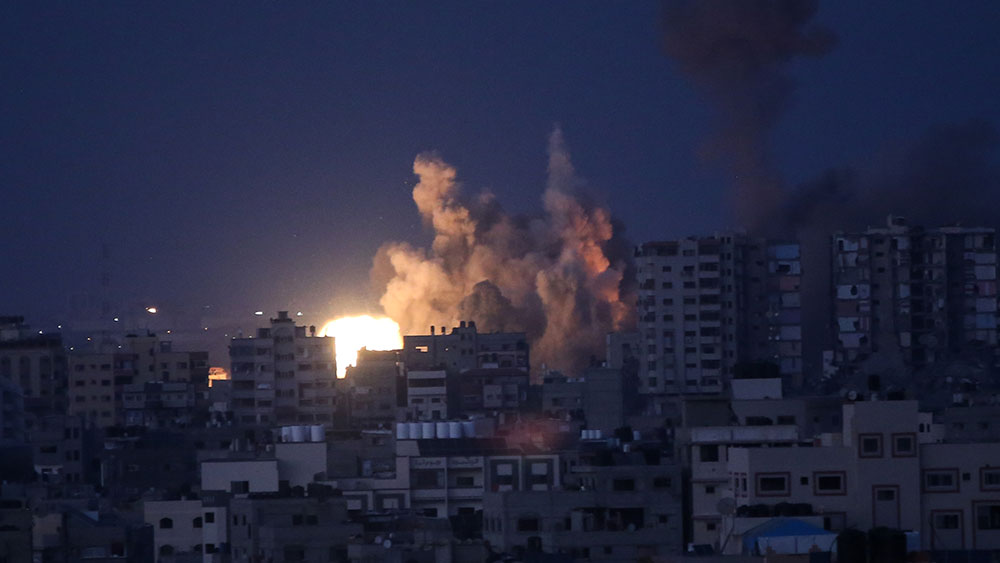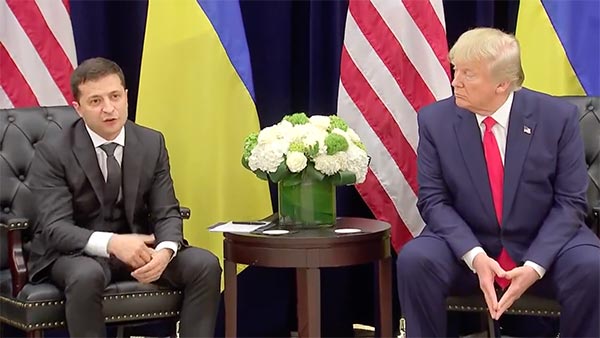 Parler
Parler Gab
Gab
- Ray Dalio, founder of Bridgewater Associates, warns that the U.S. is nearing an economic collapse far worse than a typical recession due to aggressive tariffs, record debt, political divisions and geopolitical tensions—potentially surpassing the 2008 crisis.
- Dalio compares the current situation to the economic turmoil of the 1930s and 1970s, highlighting how protectionist tariffs, rising debt and shifting global power dynamics (especially U.S.-China tensions) have historically led to crises like the Great Depression and the 1971 monetary breakdown.
- Trump’s tariffs—ranging from 10% to 145%—are disrupting global trade, straining industries (semiconductors, autos, tech) and escalating conflicts with allies and rivals like China. Dalio likens this to "throwing rocks into the production system," risking supply chain collapse.
- The U.S. federal debt exceeding $36 trillion threatens fiscal stability. Dalio argues uncontrolled deficits could trigger a "debt deflation cycle," where falling asset prices worsen economic downturns. Goldman Sachs raises recession odds to 45% within a year due to tariffs and eroding confidence.
- Dalio urges Congress to rein in deficits, stabilize tariff policies and reform monetary strategy. However, political gridlock and inconsistent White House trade policies undermine solutions. Without swift action, the U.S. risks a systemic breakdown akin to historical economic disasters.
Historical precedents and current risks
Dalio’s warnings drew direct comparisons to pivotal moments in economic history, including the Great Depression and the Nixon Shock of 1971. He highlighted how protectionist tariffs, expansive debt and geopolitical rivalries in the 1930s fueled economic turmoil, writing, “Such times are very much like the 1930s. If you take tariffs, debt, a rising power challenging the existing power—those changes in the orders are very, very disruptive.” The current crisis, he said, hinges on President Trump’s “disruptive” use of tariffs as a trade weapon. The White House has imposed a baseline 10% tariff on all imports and slapped “reciprocal” duties of up to 50% on dozens of countries, including allies like the EU and Canada. China, targeted with the highest rates (145% on imports), has retaliated with its own penalties, destabilizing global supply chains.Tariff turmoil and geopolitical fallout
Dalio described Trump’s tariff strategy as akin to “throwing rocks into the production system,” cautioning that the measures have already begun stifling global trade efficiency. The semiconductor, automotive and tech sectors now face steep input costs, while industries like smartphones and solar panels were granted short-lived exemptions—only to face renewed uncertainty as Commerce Secretary Howard Lutnick warned the tariffs could return in two months. Geopolitically, the policies have deepened rifts between the U.S. and its trading partners. Dalio noted that, historically, such shifts in global power dynamics—from Britain’s decline to the rise of China—have often preceded wars or currency collapse. “Escalating conflict could be like the breakdown of the monetary system in 1971,” he said, referencing Nixon’s abrupt end to the gold standard and the inflationary chaos that followed.Debt crisis looming over U.S. fiscal policy
At the heart of Dalio’s concerns is the U.S. federal debt, now exceeding $36 trillion. He argues that this level of borrowing—driven by stimulus packages and fiscal spending—will strain the government’s ability to stabilize markets during a downturn. “If we don’t get the budget deficit down to 3% of GDP, we’ll face a supply-demand problem for debt,” Dalio said, urging Congress to commit to fiscal discipline. Goldman Sachs’ recent assessment underscores his concerns, elevating the U.S. recession risk to 45% within 12 months due to tariff-driven inflation and consumer confidence erosion. Analysts warn that a recession could spiral into a “debt deflation cycle,” where declining asset prices force mass liquidations, further stifling economic activity.Calls for congressional action
Dalio proposed a multipronged solution: containing the budget deficit, negotiating tariffs “in a stable way,” and rethinking monetary policy.cery he emphasized that time is pressing: “How these factors are handled now could produce something worse than a recession—or it could be managed well.” However, political gridlock and the White House’s inconsistent tariff messaging complicate the path forward. While Trump’s team insists the tariffs are tools to “re-shore” manufacturing, changes to exemptions and duties have spooked investors. “The lack of clarity has been damaging,” said Felix Stellmaszek of Boston Consulting Group, noting that businesses now assume prolonged trade friction.Impending collapse?
Dalio’s warnings underscore a growing consensus among economists: U.S. policies are pushing the economy toward a crossroads. Without disciplined fiscal management and strategic trade negotiations, the risks of a prolonged slump—or worse, a monetary collapse—mount. History’s echoes—from the Smoot-Hawley tariffs to Nixon’s economic shock—serve as grim reminders of the dangers of underestimating systemic fragility. For now, the world watches to see if policymakers will choose stability over expediency, or if the U.S. economy will fall into the depths Dalio foresees. As markets stumble and trust in the dollar wavers, the cost of inaction could be civilization’s next great economic reckoning. Sources include: RT.com Independent.co.uk Fiance.yahoo.comIsrael’s far-right minister says GOP backers endorse bombing Gaza’s aid depots
By Cassie B. // Share
Trump warns Zelensky: Accept peace or risk losing Ukraine
By Cassie B. // Share
Trump administration imposes new port fees on Chinese-built ships
By Laura Harris // Share
Kinghood Group’s “gold ATMs” revolutionize how people can capitalize on soaring gold prices
By Ramon Tomey // Share
Governments continue to obscure COVID-19 vaccine data amid rising concerns over excess deaths
By patricklewis // Share
Tech giant Microsoft backs EXTINCTION with its support of carbon capture programs
By ramontomeydw // Share
Germany to resume arms exports to Israel despite repeated ceasefire violations
By isabelle // Share










